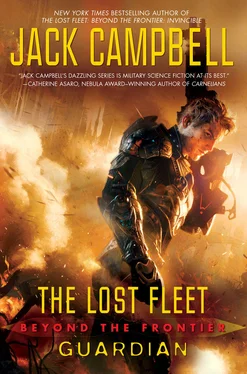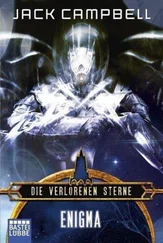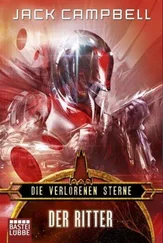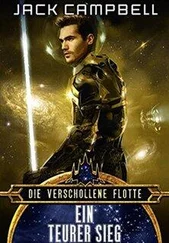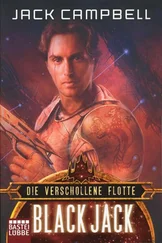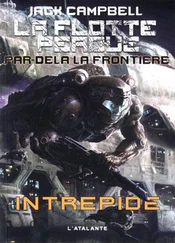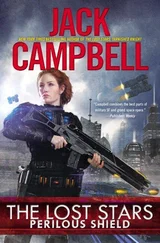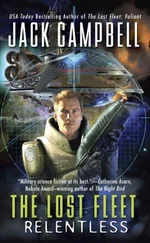“Even though.” Sakai looked off into the distance again as if he could see something there that was invisible to Geary. “I wonder why I still try. Then I think of my children and their children. What might happen to them if the Alliance falls apart? I think of my ancestors. When the day comes that I face them, what will I say I had done with the life granted me? How will they judge me and my actions?” He shrugged. “My wish is to be able to face them and say I did not quit. Perhaps my efforts are doomed to failure, but that will not be because I ceased trying.”
“You don’t really believe that it is hopeless,” Geary suggested.
Senator Sakai stood up to leave, his expression unreadable once more. “Say rather, Admiral, that I am afraid to admit that it is hopeless.”
After Sakai had left, Geary found his gaze returning to the link he had opened about returning to Sol Star System. Anachronism, am I? Fine. Traditions hold us together, but a lot of those traditions faded under the pressure of the war. Maybe it’s time for this anachronistic admiral to introduce a few more anachronisms.
* * *
“We’re going to cross the line,” Geary said.
Tanya, called to his stateroom, gave him a puzzled look. “What line?”
“ The line.”
“That helps. Not.”
“The boundary of Sol Star System,” Geary explained patiently.
“Star systems don’t have boundaries.” She tapped in some queries, then waited for the results to pop up. “Oh. You mean the heliosphere. The region around the star that defines the boundaries of a star system. I never heard of that before.”
That news should have been astounding coming from a battle cruiser commander whose career had taken her across hundreds of light-years and scores of stars. But it wasn’t. “That’s because the heliosphere of any star is well beyond the places where jump points are found or hypernet gates are constructed,” Geary explained. “The heliosphere of any star is well out in the dark between stars, in the places where human ships never go. Or rather, where they long since stopped going.”
“All right. Why does it matter now?”
“The heliosphere of Sol sets the limit for Sol Star System,” Geary said. “That’s the region where Sol’s solar wind predominates.”
“Yes,” Desjani said with exaggerated patience as she read the results of her query. “In the case of Sol, the heliosphere extends out about twelve light-hours,” she quoted. “Or about one hundred astronomical units. What the hell is an astronomical unit?”
“A very old way of measuring distance. You know, like a parsec.”
“A what?”
“Never mind ,” Geary said.
“Fine,” she replied. “This is the line you were talking about? The edge of the bubble that defines the heliosphere for Sol? But it’s way past anything . Nobody goes that far from a star in real space. Why would they? There’s nothing there but dead, wandering rocks.”
“Tanya, once upon a time, people couldn’t use hypernet gates or jump points to travel to other stars. The missions to the first stars reached by our ancestors had to cross that line, physically cross it in real space. It meant something very important. It meant humanity had left the star that had given birth to us and humanity was now reaching into the universe.”
“It was important to our ancestors?” Tanya regarded the display over Geary’s desk with new respect. “Yes. Of course it was. That marked the point where a ship and the people on it left Sol.”
“Exactly. They had a celebration. And even after we discovered jump technology and no longer had to physically leave and enter the heliosphere, ships still used to mark when they crossed that line. Any other star’s heliosphere didn’t matter. But Sol’s did. It was a very big deal to say you’re a Voyager.”
“A… Voyager?”
“Once you’ve crossed the line, you can call yourself a Voyager,” Geary said. “That’s the tradition.”
“Our ancestors did this?”
“Yes.”
Desjani nodded. “Then we should. How did you happen to remember this? I can’t recall anyone ever saying anything about it.”
“The fleet used to send a ship back to Sol every ten years,” Geary said. “To commemorate the anniversary of the launch of the first interstellar mission from Old Earth’s orbit. We only sent a ship at decade intervals because it was a long haul without hypernet capability. I never went, but I talked to some people who did, and at that time the whole crossing-the-line ceremony was still a big deal.”
“But during the war, we couldn’t afford to send any ships,” Desjani said. “I get it. Those early years were desperate. We couldn’t have spared a ship for that long in those days.”
Geary nodded. “The next ship was supposed to be sent less than a year after the initial Syndic attacks hit. I remember that everyone was wondering who would be selected. It seems strange to think about it now, but wondering which ship would get to make the trip was one of the biggest topics of conversation in the fleet before the fight at Grendel.”
Tanya looked back at him blankly. “ That was your biggest concern?”
He felt a flush of shame. Tanya, like all of the officers and crew in the fleet, had spent her career, had spent her entire life, worried about the war with the Syndics, worried about life and death and the lives and deaths of those she knew and loved. How can she imagine a universe where the biggest concern in the fleet was which ship would get to go on a joyride to Sol? How can I ever feel superior to those whose lives have been consumed by issues far more grave than the little things I once had the luxury of being concerned with?
“Yes,” Geary finally said.
“I… guess that was important back then,” Tanya said in a way that made it clear she was trying to grasp the concept and failing. “I can understand the crossing-the-line thing,” she added. “And commemorating the first mission to another star. That was so big. They actually traveled at sublight speed across the dark between stars. I read about that when I was a little girl.”
Her eyes went distant with memory, and she smiled. “ The Ship to the Stars. I remember the book because I read it so many times. It was about a girl and a boy on the ship. They had been born on the ship because it was a generation ship. The trip would take so long that the crew who had left Old Earth would all die of old age on the way. Their children were brought up to run the ship and continue the journey, and their children would actually reach the other star.”
Geary smiled, too, recalling the story. “I read the same book. I wanted to be that little boy. Anyone could travel to another star, but only people like him ever crossed the dark between stars. Ever since we discovered how to use jump drives, no one has gone into the Great Dark.”
“I talked to Jaylen Cresida about that once,” Tanya said in a low voice, her expression saddened at these memories of their dead comrade. “The observations those people and their instruments recorded are still used. Jaylen had studied some of them. We still depend on that data about the nature of space far from any star because no one else has ever gone out there to collect it.”
“Really?” Geary looked toward a bulkhead as if he could see through it to the space beyond the bubble of nothing in which Dauntless was heading for Sol. “Instruments must have gotten a lot better since then. You would think someone would propose an automated mission to get new data.”
Desjani shrugged. “We’ve been busy,” she said.
He wanted to slap his forehead over his boneheaded statement. Busy. With a century of desperate warfare. “I know. Um… there was a ceremony when you crossed the line. This is your ship, so it’s up to you, but it is a tradition.”
Читать дальше
Конец ознакомительного отрывка
Купить книгу
